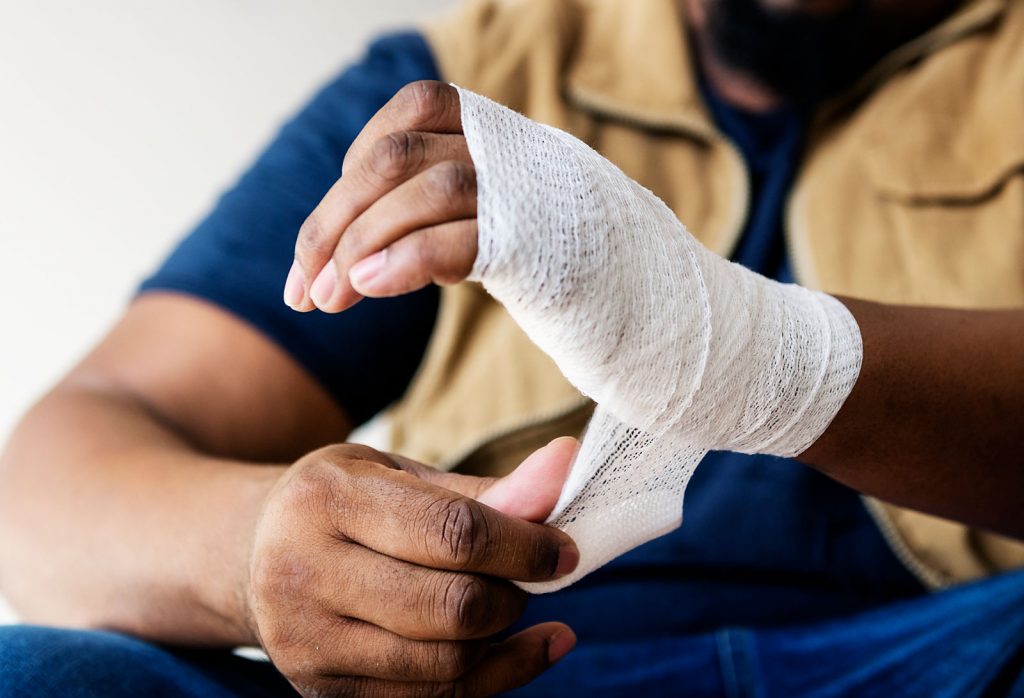It’s hard to imagine life without the use of your hands.
Just one of your hands, including the wrist, has 27 bones — each responsible for its own movement. The hands are so intricate, in fact, that there are surgeons trained to deal with them and only them.
So it comes as no surprise that the time would come for a medical center to focus on hand-related injuries and surgeries. In a joint venture between Sentara and Tidewater Orthopaedics, the new Sentara Hand Specialty Center will provide patients on the Peninsula superior hand care from pre-op to rehab. The center opened in early February.
Our hands and our fingers are so vital to everything we do,”
says Stacey Bell, chief executive officer for Tidewater Orthopaedics, a Peninsula-based orthopedic practice. “To have a team that this is all they treat — it’ll be good for everyone involved.”
24-hour care from specialty surgeons
The crux of the hand center is the ability to offer 24-hour care to patients needing medical attention for their hands — basically anything below the elbow — such as broken bones, crushed fingers and severe lacerations. Hand surgeons are on-call for hand emergencies at Sentara emergency rooms in Hampton, Newport News and Williamsburg and available for same-day follow-up appointments in a hand clinic. The hand center also ties in physical and occupational therapy that may be needed post-surgery.
One of the key components of the hand center is having specialty trained surgeons. Doctors Robert Campolattaro and Nicholas Smerlis, both long-time surgeons with Tidewater Ortho, are both board-certified hand specialists. Smerlis and Campolattaro will be joined by a third surgeon — Dr. Robert Mason, who specializes in upper extremities, including the hand — along with Tidewater Ortho’s dedicated hand physician’s assistant (PA), Gabrielle Lanzetta.
Only about 2,000 orthopedic surgeons in the United States are board-certified in the hand. However, specialized training in sub-specialties such as the hand and foot are becoming more commonplace in the field of orthopedics, with specialty centers popping up around the country to better meet the needs of patients with injuries.
“As the population ages, we’re needing more orthopedic care,” says Carole Guinane, Sentara’s vice president for system orthopedics. “We’re living longer; our joints wear out. Plus, we’re more active.”
The hand specialty center is the second for Sentara, which is already operating one through Sentara Leigh Hospital in Norfolk. The new center will be able to reach patients throughout the Peninsula, Guinane says.
How the center works
Patients with hand emergencies who visit the Sentara CarePlex Hospital in Hampton, the emergency room at Sentara Port Warwick in Newport News or Sentara Williamsburg Regional Medical Center will be assessed by emergency room staff. If necessary, staff will contact the hand surgeon on-call for assessment. Depending on the degree of injury, patients could be sent right to an operating room, or fixed up temporarily and given an appointment to the hand clinic at Tidewater Ortho that day or the following day.
Some injuries, such as open fractures, will get immediate operative care:
Anything that requires surgical intervention will get care by a hand surgeon,” Campolattaro says.
Some surgeries may take place at the COASC — the CarePlex Orthopaedic Ambulatory Surgery Center — where many same-day surgeries are performed. This outpatient center is located in Hampton, attached to the Sentara CarePlex.
What’s different from the previous way hand injuries were handled is the 24-hour surgeon access as well as the presence of specialized carts in the ERs — hand crash-carts, if you will. “If you come in, the surgeon has access to the specialty supplies he needs,” says Shannon Ferguson, director of Sentara patient care services/surgical services. “You don’t have to wait and he doesn’t have to hunt.”
The emergency room staff will be trained on best practices in caring for injuries — such as how best to splint a hand or wash out a wound, what tests might need to be done or other pre-op processes. Someone comes in with a detached finger? Staff knows what to do to care for the patient — and the finger — while a hand surgeon is called. “Over time they’ll get more comfortable with what they can do,” Smerlis says.
Better coordination and coverage
Many of the pieces were already in place for the creation of a hand center, but the different components weren’t always being coordinated. If a hand surgeon wasn’t available to come to an emergency room, a patient would be seen by the orthopedist on call and then likely transferred to another facility for hand surgery, which could be in Richmond or Norfolk. The new hand center helps increase coordination and coverage and helps hand patients get treatment right on the Peninsula. Ideally it will increase the likelihood that patients will get the post-op care, including rehab, that they need.
“Potential patients will have full coverage for hands,” Guinane says. “You don’t have to travel to get great care. You don’t have to go to Washington, D.C., or down to Duke. We really do supply high-level orthopedic care in our region. We’re proud of that.”



